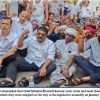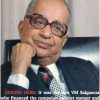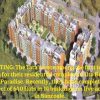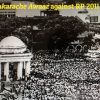Goa is abuzz with excitement as vintage bike and car owners, users, collectors and fans are decking […]
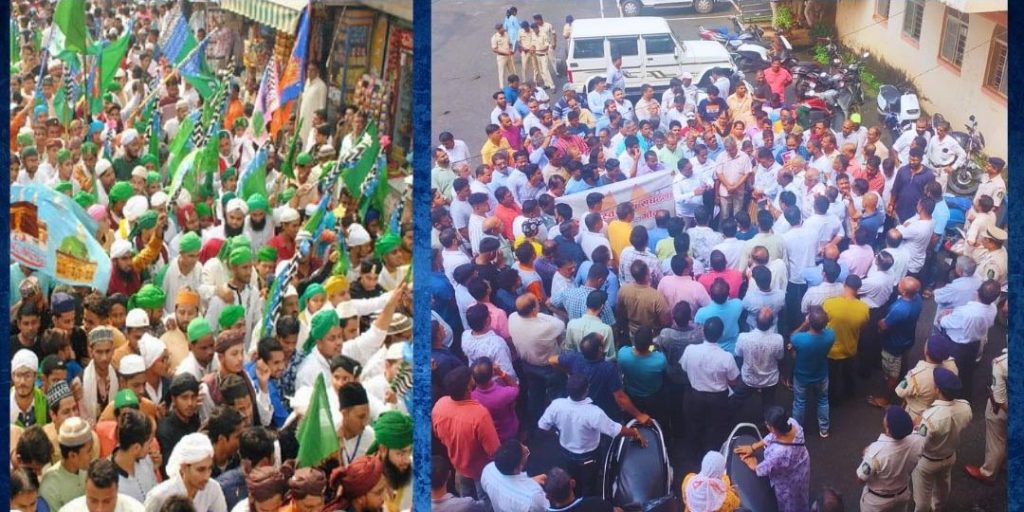
CUNCOLIM MASJID `JULUS’ STALLED!
Cover Story, Oct 05- Oct 11 2024 October 4, 2024By Rajan Narayan
GOA’S tradition of communal harmony is under threat. The hard core Hindutva elements in Goa are flexing their muscle encouraged by the Narendra Modi government. Hindutva elements pressurized the deputy collector of Canacona to deny permission for the traditional Muslims procession (julus) to coincide with Eid-ul-Milad. The excuse was that it coincided with the 7th day of the immersion of the image of Lord Ganesh.
Far more serious is the shutting down of the regular Saturday market in Canacona. The Hindutva brigade is demanding that Muslims traders should not be allowed to participate in the Saturday market. The demand is been disguised as a protest against outsiders coming to the Saturday market. Every citizen of India and Goa has a right to earn his livelihood anywhere in the country and in Goa. The ban on members of a particularly community carrying on their trade in the local market is very disturbing. If Hindutva elements prevent Muslim traders from the markets in Goa ordinary citizens will very badly affected.
The majority of the vendors in the vegetable and meat markets in all the towns in Goa ranging from Margao, Panaji, Valpoi and Vasco are Muslims. It is a matter of deep concern that the poison of communalism has spread to the city of Mapusa. The hard line Hindutva brigade is reported to have assembled in large number outside the Mapusa police station. They reportedly submitted a memorandum seeking an early enquiry by the Muslim community on Saturday, September 28, 2024 in Mapusa. The protestors in Mapusa claimed that Muslims traders had made anti-Hindu remarks. The Hindutva hardliners threatened to call for a boycott of Muslim traders in Mapusa.
HINDUTVA GROUPS
THE communal tension between hard-core Hindutva groups in the minority Muslim community in Cuncolim is heating up. The confrontation began during Eid-ul-Milad on September 16. Traditionally, the Muslim community in all parts of Goa had taken out a procession during Eid-ul-Milad. The processions were held without any problems in Panaji, Margao, Vasco, Valpoi and Ponda where there is a significant number of Muslims.
However, in Cuncolim hard core Hindu groups strongly objected to the Muslim community taking out their “julus” which literally means procession. Over the weekend there were clashes between the two groups in Cuncolim. It was reported that late on Sunday evening, September 29, large groups from the two communities gathered at the Cuncolim police station. The Muslim group demanded the immediate arrest of members of the Hindu group who allegedly assaulted a member of the Muslim community. The assault was linked to the ongoing controversy over a julus to be taken out by the Canacona Masjid Committee.
There has been opposition to the julus and various committees representing the two groups both in Canacona and Cuncolim have filed complaints against each other. The complaints are primarily against the provocative speeches of the right wing group. But both sides have complaints and counter-complaints against each other.
STARTING WITH ASSAULTS
THE Masjid group has alleged that members of their community have been assaulted by two or three members of the right wing group. The counter-complaint alleged that some members of the minority community had hurt Hindu religious sentiments. This is probably the first time that there have been clashes in Goa over a traditional Muslim julus procession.
Significantly, there have never been any objection to the procession taken out in various parts of Goa by the Hindu or Catholic communities. Every major Hindu temple has its zatra and palki processions on temple anniversaries. Even in Panaji city there is the annual zatra or jatra of the Hanuman temple at Altinho and it passes through the streets of Mala. Everyone participates or they do some useful shopping which crops up during these days.
Among the biggest and the most colourful festivals is the gulal festival at the Damodar temple in Zambaulim where the whole village is drowns in a sea of colors, mostly orange and yellow color powders with names like gulal and sindoor.
Cuncolim has historically been an oasis of communal harmony. The original Shanta Durga temple in Fatorpa was in Cuncolim. The temple was shifted to Fatorpa during the Portuguese colonial years when there were fears that the regime may raze it down. Even now the image of Shanta Durga is taken to Cuncolim before the zatra. Unlike the Shanta Durga temple in Cavlem in Ponda, the Fatorpa temple is managed by Kshatriya people who in Goa are called Chardo of Cuncolim.
Hindu Gaonkars who converted to Christianity still have precedence of worship at the Fatorpa temple. It is therefore all the most likely that the Catholic-dominated Cuncolim constituency should see objections to the julus taken out by the Muslim community. It is disturbing that the hard core Hindutva elements have opposed the julus both in Canacona and Cuncolim. Under no circumstances should hate speech be tolerated in Goa by any community.
MISCHIEVOUS ELEMENTS
THERE have been no major or even major communal riots in Goa, as in neighboring states Karnataka and Maharashtra. There have been major communal riots in Hubli in Karnataka and the powerloom town of Bhiwandi in Maharashtra. There was only one stray incident of communal tension in Goa way back in 2006. The local Hindu community objected to the Muslims using a housing board flat as a madrassa in Gudamal in Curchorem.
Some mischievous elements spread the rumor that Muslims of Karnataka were on the way to Curchorem armed with iron rods and swords. The rumor was used by hardcore Hindutva elements to target homes and shops of the Muslim community in Curchorem. Chief Minister Pratapsingh Raoji Rane who was in power then acted promptly and a number of senior leaders of the RSS and the BJP were arrested. The late chief minister, Manohar Parrikar, stormed the Curchorem police station and threatened to liberate those who had been arrested.
Fortunately, better sense prevailed and communal harmony was restored. Our then executive editor Jonquil Sudhir was witness to the mob attacks by the RSS and the BJP. They assaulted even the police force which was trying to defend the Muslim community.
SEEKING HARMONY
EVEN after Modi came to power in 2014 Goa has not witnessed any communal tension. Though the Muslim community has now grown to 10% or more of Goa’s population they have lived in harmony with the Hindu majority community. Ironically, clashes have been between the Catholic and Hindu community over land for burial grounds and Muslim madrasas. Admittedly the number of mosques has gone up to meet the religious requirements of the growing migrant Muslim community.
Goa had only a token population of Muslims at the time of Liberation. Over 90% of Muslims in Goa are migrants from neighboring states like Karnataka. However, more recently there has been an influx of Muslims and maulana from Uttar Pradesh. The complaint against these new Muslims is that they have not yet integrated with the mainstream communities of Goa. There is much greater integration between Hindus and Catholics. To the extent that Mother Mary is considered to be one of the seven sisters amongst prominent Hindu deity goddesses of Goan origin.
In the Milagros church in Mapusa there is the Hindu tradition of anointing the mother goddess with oil. In the Zagor festival in Siolim traditionally it’s a Catholic who is the main celebrant. Secularism is an integral part of the character of Goa. All communities in Goa have lived in harmony for over five decades. Every government including the BJP government has respected the tradition of communal harmony in Goa.
We are glad that Chief Minister Dr Pramod Sawant has clarified that the police will give permission for all rallies and processions including the julus of Muslim devotees. We hope that the chief minister will ensure that Muslim traders are permitted to function freely in the various markets, including the Saturday market in Canacona.
However, the chief minister has left it to the police to decide if any procession is going to create a law and order problem. We hope the budding communal hostilities do not spread as many of the markets in Goa, including the Panaji and Margao markets, are dominated by Muslims. It must be recognized that Muslims as much as Catholics are important parts of the economic and social life and fabric of Goa.
Former Chief Minister Manohar Parrikar respected the traditions of both Catholic and Muslim communities. Indeed, it may be recalled that Manohar Parrikar gave tickets to several Catholics to contest on BJP tickets. We hope Pramod Sawant will continue the tradition of communal harmony in Goa.



